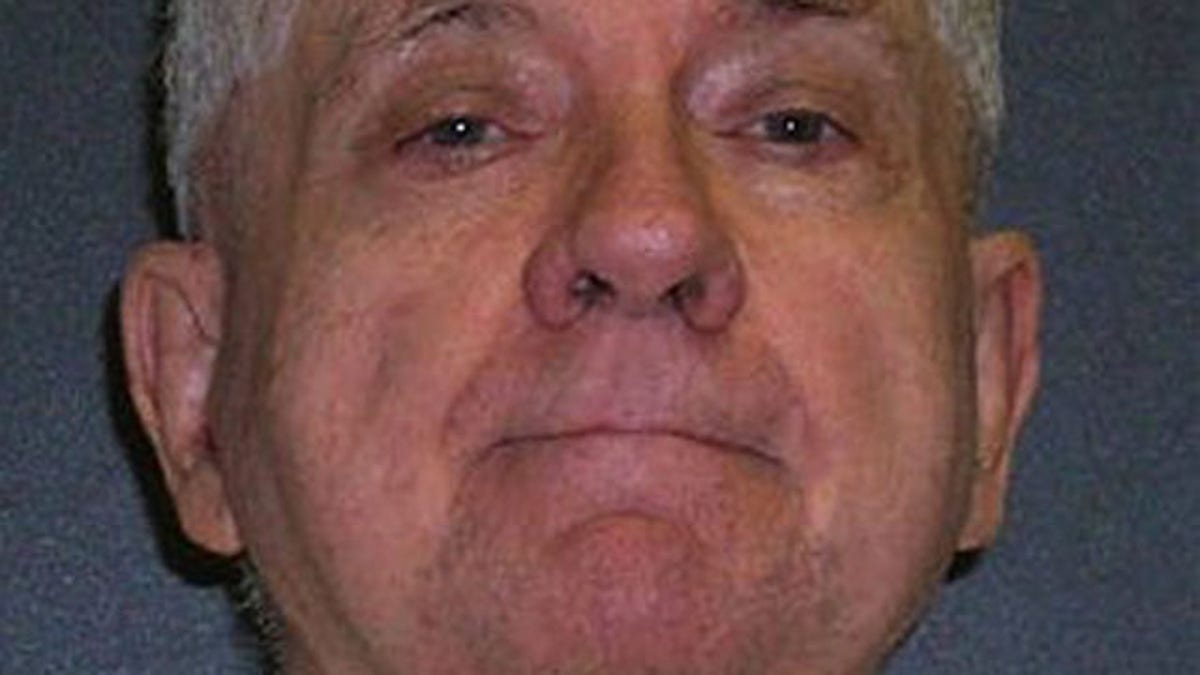
This photo provided by the Texas Department of Criminal Justice shows Edward Harold Bell. (AP Photo/Texas Department of Criminal Justice)
HOUSTON – At age 84, Elmer Pitchford knows time is running out for him to learn who killed his teenage daughter four decades ago in Houston.
"I would like to know before I die, that's for sure," he said.
But the retired dock worker said he's not sure what to think of claims being made by Edward Harold Bell, a 72-year-old Texas prison inmate who claims he killed nearly a dozen young girls found murdered in southeast Texas in the 1970s -- including Pitchford's 16-year-old daughter, Kimberly.
Part of him wants to believe that Bell had something to do with the unsolved murder, but he also thinks Bell may turn out to be a "kook." The aunt of another slain girl also expressed mixed emotions, saying it makes her question whether the suspect convicted in her niece's death was the right man.
Investigators said that while the Bell's claims aren't entirely new and were previously investigated, they are looking at them again after he told the Houston Chronicle he was responsible for the deaths of as many as 11 girls.
"The bottom line is Ed Bell has said these things (before). Is it fodder? I don't know. I've never been able to prove anything he has said," said Capt. Chris Kincheloe of the Brazoria County Sheriff's Office, which has four of the unsolved murders for which Bell is claiming or hinting responsibility, including Kimberly Pitchford.
Bell is serving a 70-year prison sentence for the 1978 killing of a Houston-area Marine who tried to stop him from masturbating in front of a group of girls. But in recent interviews with the newspaper, he described a string of cases from 1971 to 1976.
Bell claimed he killed four girls whose names he knew, all of them teenagers, including Kimberly Pitchford. He also described four other victims he said were killed in pairs, and gave incomplete information on three others. The cases involved girls who were between the ages of 12 and 19 and were taken from towns and rural roads in Brazoria, Harris and Galveston counties.
Investigators in those counties, prompted by Bell's claims to the newspaper, have said they are reviewing evidence in the mostly unsolved murders. Bell said he would provide proof to back up his claims -- but only if he's given immunity.
Capt. Jeff Heyse, spokesman for the Galveston Police Department, which is reviewing two of the unsolved murders, said he found it "interesting" that Bell wants immunity when he is already serving a life sentence.
"We're looking at where we can go from here," Heyse said.
The newspaper reported that prosecutors in Galveston and Harris County received letters of confession from Bell in 1998, but he never was indicted because detectives were unable to verify his claims or because of cost considerations related to cold-case investigations. Harris County prosecutors apparently lost copies of Bell's letters.
Prosecutors in Galveston did not return a telephone call seeking comment from The Associated Press, while the Harris County District Attorney's Office declined comment.
Kincheloe said he read the letter that Bell sent to Galveston prosecutors and found "there was nothing there that we could use in our cases." He said Brazoria County sent two investigators in 2008 to speak with Bell about two slain girls, but Bell wouldn't talk.
Kincheloe said he wonders if Bell "running a Lucas scam," in reference to serial killer Henry Lee Lucas, who told police he killed as many as 600 people but later recanted. Lucas died in a Texas prison in March 2001, after his death sentence was commuted.
"Several aspects of Ed Bell's story have been investigated in the last 10 years and I never found anything," Kincheloe said. "It's not like people have turned a blind eye and a deaf ear to Ed Bell. We just can't find anything."
But the convicted killer's claims did shock Dotti Walker, the aunt of 14-year-old Sharon Shaw, one of the young girls that Bell didn't name but could be tied to.
Walker, 77, said she was surprised because another man was convicted for her niece's murder, as well as the slaying of Shaw's friend, 14-year-old Rhonda Renee Johnson. The two girls were abducted in 1971 after going to the beach in Galveston.
Michael Self, a mechanic from suburban Houston, was convicted of the two girls' murders and died in prison in 2000. His attorneys said during appeals that Self was wrongly accused, and the Houston Chronicle reported earlier this summer that at least two investigators, a Galveston police officer and a former Harris County prosecutor, believed that Self might have been the wrong man.
Echoing Elmer Pitchford's sentiments, Walker said she hoped investigators would go back and talk to Bell but wasn't sure whether he should be given immunity.
Before Bell's claims resurfaced this week, she had no doubt that Self was responsible for her niece's death. Now she's unsure.
"The things this man is saying seem like they are true but I don't know ... This is unsettling. It's a case of mixed emotions. Is this guy telling the truth or is he a nut job or what?"








































